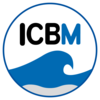ACADEMIC COUNSELLING
Programme coordination
Email: info.microbiology@uol.de
Student body of department
Homepage: https://uol.de/en/student-counsil-of-the-icbm-masters
Email: master.icbm@uol.de
Head of study program

Prof. Dr. Martin Könneke
Microbiology (M.Sc.)
Info for all Master Microbiology students starting in the winter term 2024/2025
As the first lecture will be held online on Monday, October 14th starting at 12:15 a.m., you have to sign in via StudIP using the following steps:
• Login to StudIP (elearning.uni-oldenburg.de/) using your account sent by the university (e.g. abcd1234)
• You can switch the system to English using the flag symbol
• Use the search function to look for “Physiology and Life modes of Prokaryotes”
• Click on the course “5.13.501 Lecture: Physiology and Life modes of Prokaryotes”
• Use the button “go to course” to affiliate to the course
• All further informations will be given via your new university e-mail
Please contact info.microbiology@uol.de if you don’t have a StudIP account until 9th of October!
FACTS AND FIGURES
- Degree: Master of Science
- Duration: 4 Semester
- Course start: Annual (winter semester)
- Language: English
General information
Aim of the study program is the training of qualified scientists in different disciplines and methods of modern microbiology and the fields of application. The study program is research-oriented. In this program, students should be trained to acquire new scientific findings together independently and in cooperation with others and to recognize its significance for society and professional practice. The qualification is based on a balanced mix of theory and practice; the specializations contain important components of the necessary knowledge and skills for a successful career in the various fields of modern microbiology.
The Master’s program in Microbiology is taught in English language and comprises the following main subject areas: diversity, ecology, physiology, and molecular microbiology. The main lectures within the first semesters provide the theoretical basis for the subsequent 4 or 2 week practical courses on specific topics of current microbiological research, e.g. aquatic microbial ecology, bacterial physiology, electron microscopy, genomics, molecular genetics, proteomics, and sediment microbiology. In these courses, state-of-the-art methods and instruments are used, e.g. fluorescence in situ hybridization (FISH), flow cytometry, quantitative real-time PCR, and mass spectrometry. Finally, the students perform two independent research projects of 6 weeks each, getting involved in ongoing research projects that may be continued in the Master´s thesis. The degree “Master Microbiology” provides broad qualification for diverse job opportunities.
Distinctive features of the Master´s programme are:
- Focus on marine, environmental microbiology
- Research-oriented studying
- State-of-the-art methods and instrumentation
- Possibility of participation in research cruises
- Involvement in interdisciplinary research programmes
- Cooperation with national and international partners
- Alfred Wegner Institute (Bremerhaven)
- Helmholtz Institute for Functional Marine Biodiversity (Oldenburg)
- Helmholtz Institute for Infectious Disease Research (Braunschweig)
- Max Planck Institute for Marine Microbiology (Bremen)
- University of New South Wales (Sydney, Australia)
- University of North Carolina (Chapel Hill, USA)
- Technical University of Denmark (Copenhagen, Denmark)
Involved Working Groups
The following working groups of the ICBM are involved in the program:



